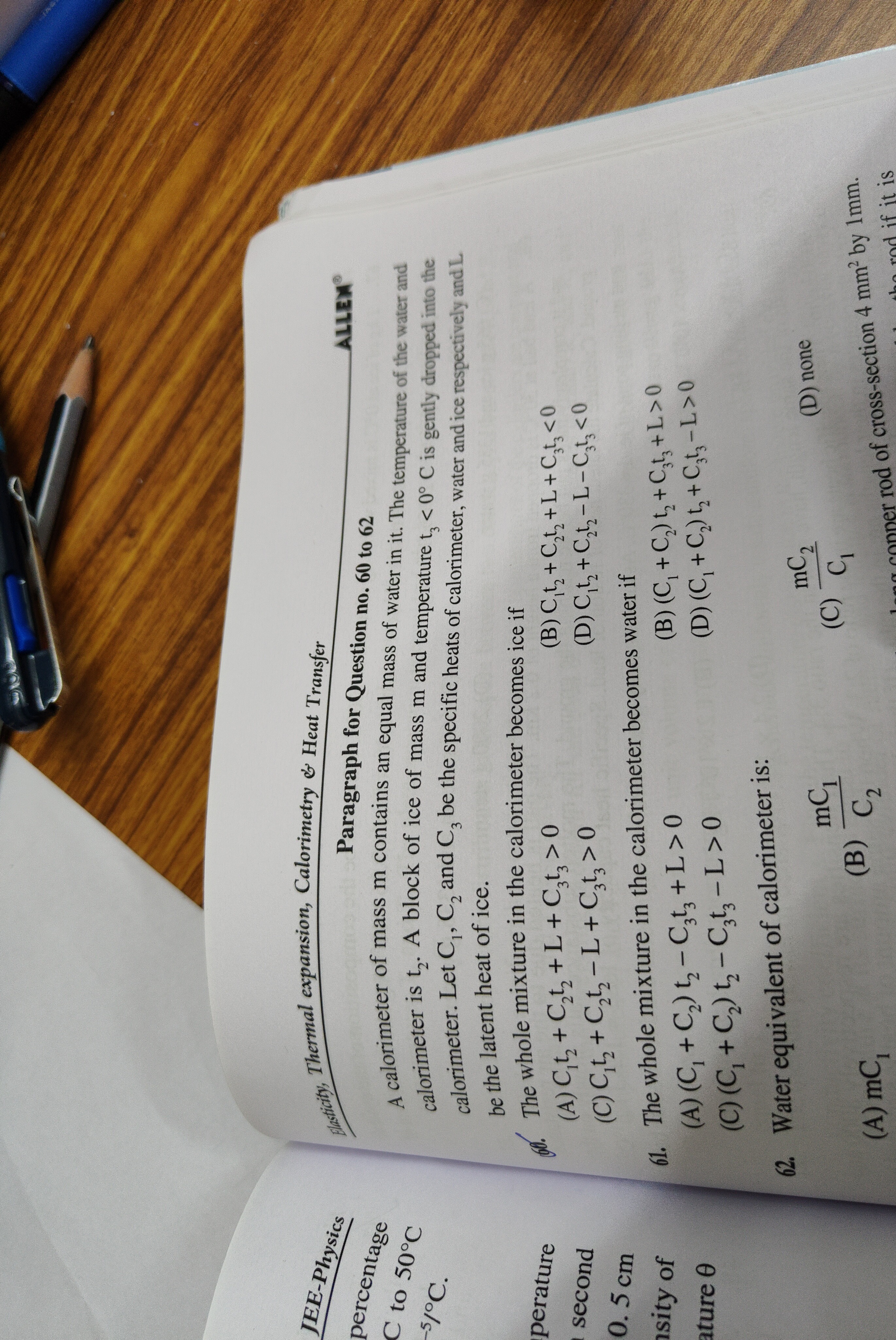Question
Question: The whole mixture in the calorimeter becomes ice if...
The whole mixture in the calorimeter becomes ice if

C₁t₂ + C₂t₂ + L + C₃t₃ > 0
C₁t₂ + C₂t₂ + L + C₃t₃ < 0
C₁t₂ + C₂t₂ - L + C₃t₃ > 0
C₁t₂ + C₂t₂ - L - C₃t₃ < 0
C₁t₂ + C₂t₂ - L + C₃t₃ > 0
Solution
For the whole mixture to become ice, the heat released by the calorimeter and water as they cool to 0∘C must be sufficient to warm the ice to 0∘C and then freeze all the water. Heat released by calorimeter cooling from t2 to 0∘C: Qcal=mC1(t2−0)=mC1t2. Heat released by water cooling from t2 to 0∘C: Qwater=mC2(t2−0)=mC2t2. Heat gained by ice to warm from t1 to 0∘C: Qice_warm=mC3(0−t1)=−mC3t1. Heat required to freeze the water at 0∘C: Qfreeze_water=mL.
The condition for the entire mixture to become ice is that the total heat released is greater than or equal to the total heat required: Qcal+Qwater≥Qice_warm+Qfreeze_water mC1t2+mC2t2≥−mC3t1+mL
Assuming m>0, we divide by m: C1t2+C2t2≥−C3t1+L C1t2+C2t2+C3t1−L≥0
The options provided use t3 instead of t1. Assuming t3 is a typo for t1, the condition becomes C1t2+C2t2+C3t1−L≥0. Option (C) is C1t2+C2t2−L+C3t1>0, which matches the derived condition for the mixture to become ice with a final temperature below 0∘C.
